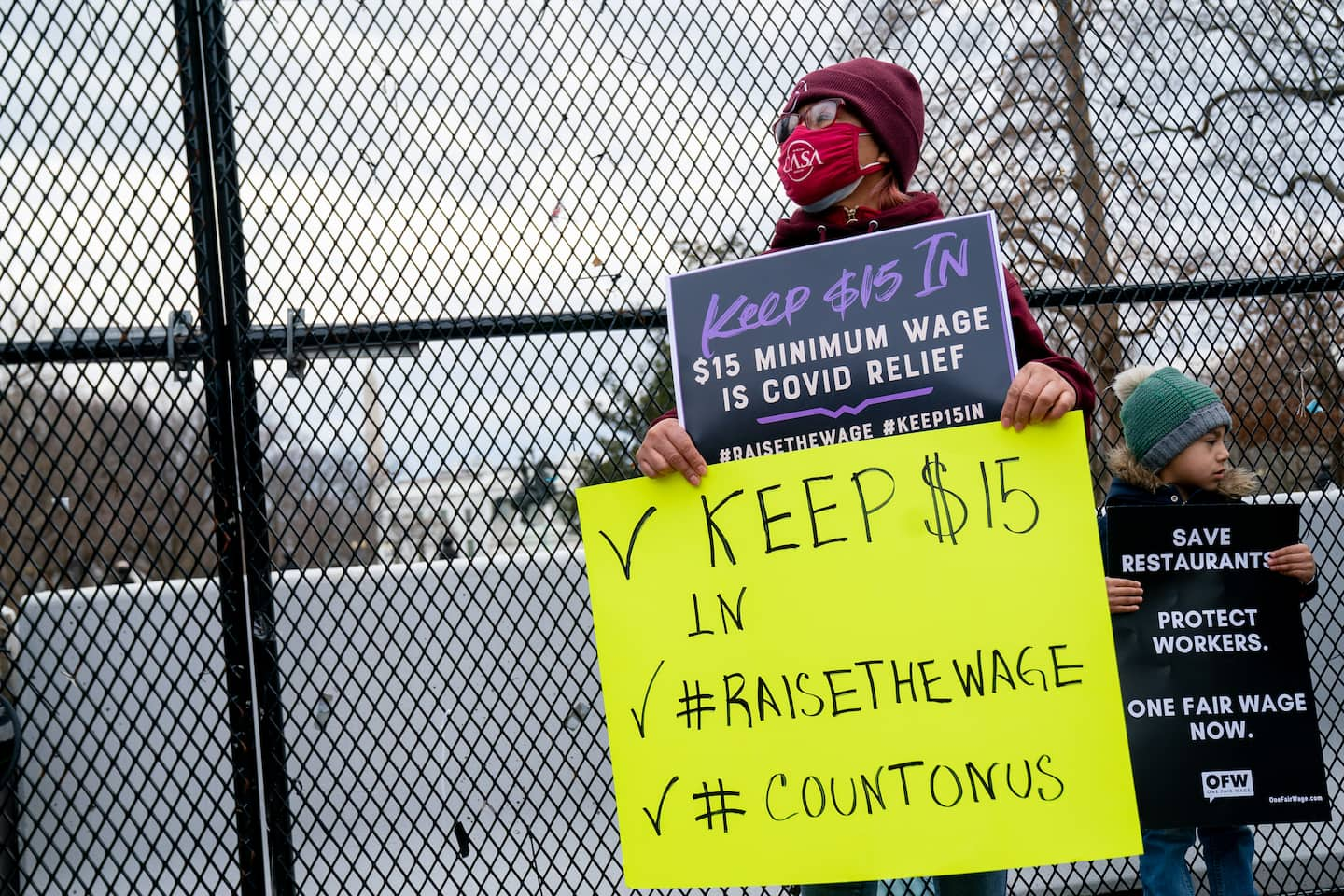Democrats can’t back down on the minimum wage

Let’s hope they’re right. Democrats are not inclined to fire the parliamentarian — as Republicans did in similar circumstances in 2001 — or to overrule her. The only other option that leaves then to pass a $15 minimum wage would be reforming the anti-democratic legislative filibuster. For that, Democrats would have to win over Sens. Joe Manchin III (D-W.Va.) and Kyrsten Sinema (D-Ariz.), all without the carrot of covid relief to entice those votes. It’s a tall mountain, but one Democrats should try to climb, because Americans deserve — and want — a higher minimum wage.
The policy case for a $15 minimum wage has never been stronger. Opponents will point to the Congressional Budget Office’s finding that it would cost 1.4 million jobs. But the most comprehensive review of studies on the subject found that, on average, a higher minimum wage’s effect on jobs would be negligible. And the benefits are undeniable: Even the CBO found that a $15 minimum wage will boost paychecks for 17 million people and lift 900,000 out of poverty.
The political case is, if anything, stronger. Some establishment media outlets will point to focus groups to suggest that a $15 minimum wage is unpopular. But poll after poll shows about two-thirds of Americans support it, including unusually strong support among Republicans. The same Florida electorate that gave Donald Trump a comfortable win also passed a $15 minimum wage with 61 percent of the vote.
While we wait for Manchin and Sinema to come to their senses on the filibuster, there are some stopgap measures that can be taken. Sens. Bernie Sanders (I-Vt.) and Ron Wyden (D-Ore.) are proposing adding tax penalties for “big corporations” that don’t pay at least a “certain amount”, as well as tax credits to small businesses to incentivize higher wages. Other senators aren’t entirely sold; Sen. Mark R. Warner (D-Va.), for example, told “Fox News Sunday” that “I’d be concerned there about those corporations then outsourcing that work to small enterprises.” Still, the idea has Senate Majority Leader Charles E. Schumer’s support, which is a start.
But the Sanders-Wyden proposal must only be a down payment on a future wage raise. Twenty years ago, when a parliamentarian ruled against Republican efforts to pass tax cuts by reconciliation in an evenly divided Senate, the GOP replaced him. Democrats may believe they have good reasons not to follow that example, but one way or the other, they need to get this done. Failure risks sending a dangerous message that they simply don’t prioritize a living wage for all Americans the way Republicans do tax cuts for the wealthiest.
Moreover, a $15 minimum wage is more than good politics. It’s more than good policy. It’s a test of whether Democrats can deliver on the trust voters have placed with them to overcome Washington dysfunction and move the country forward.
Read more:






